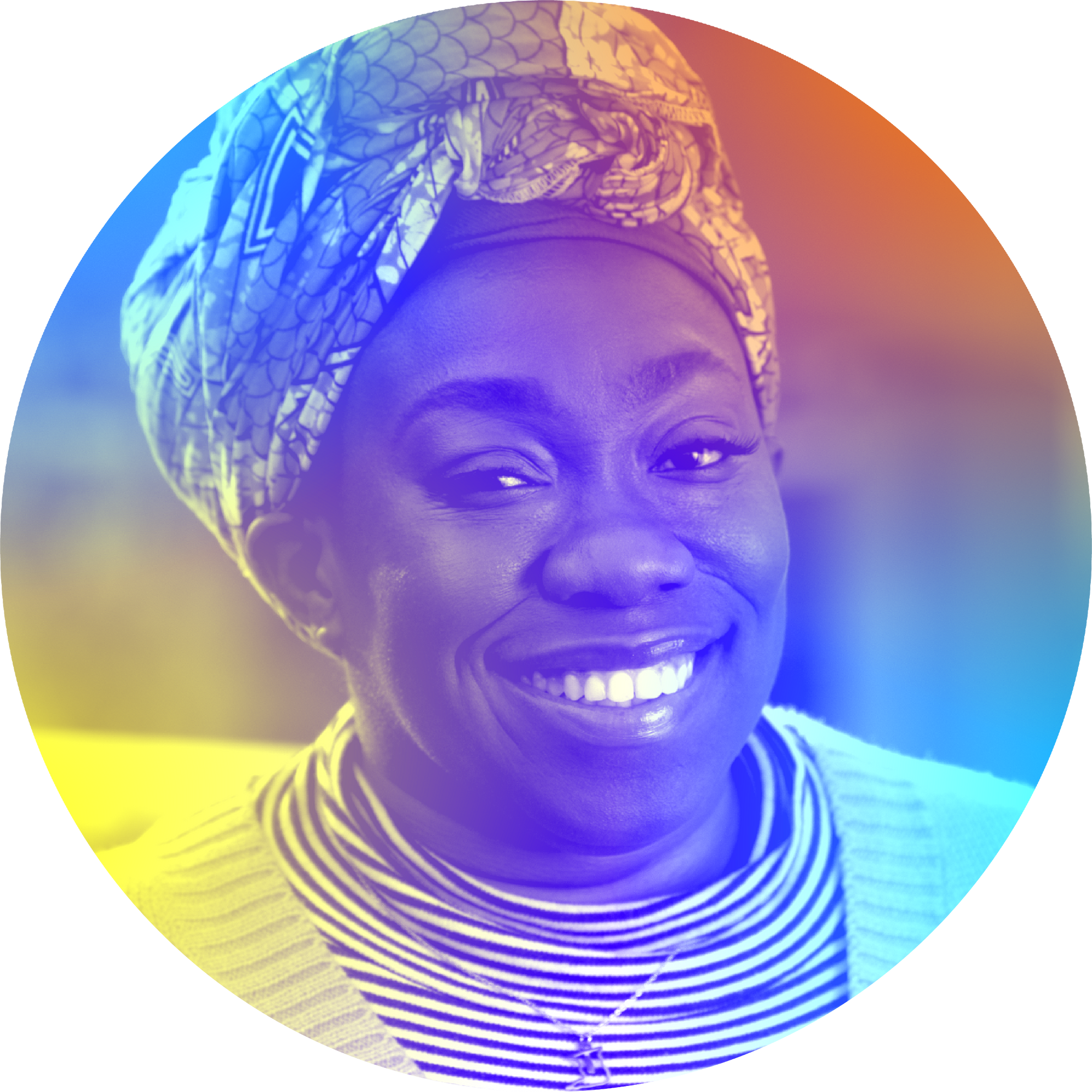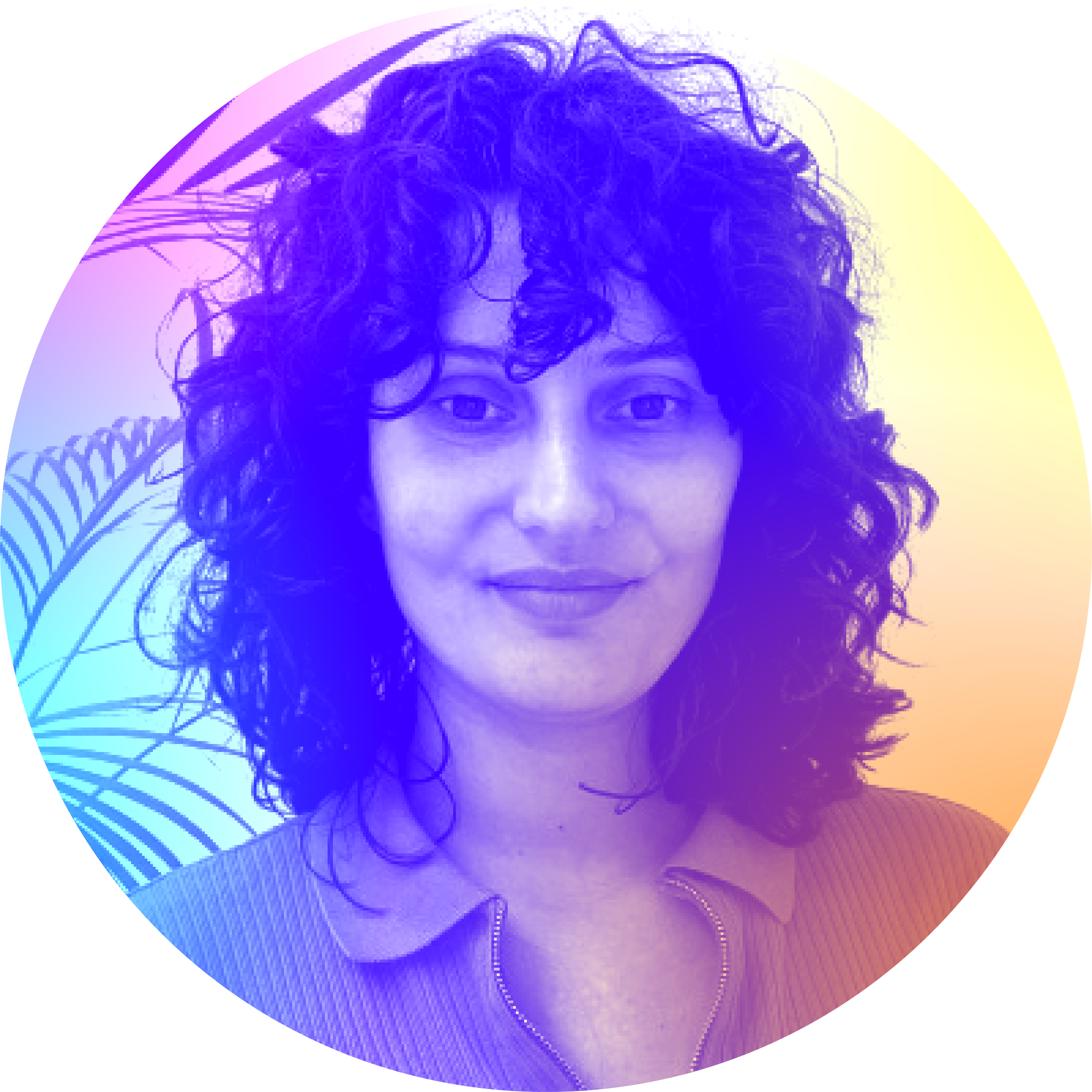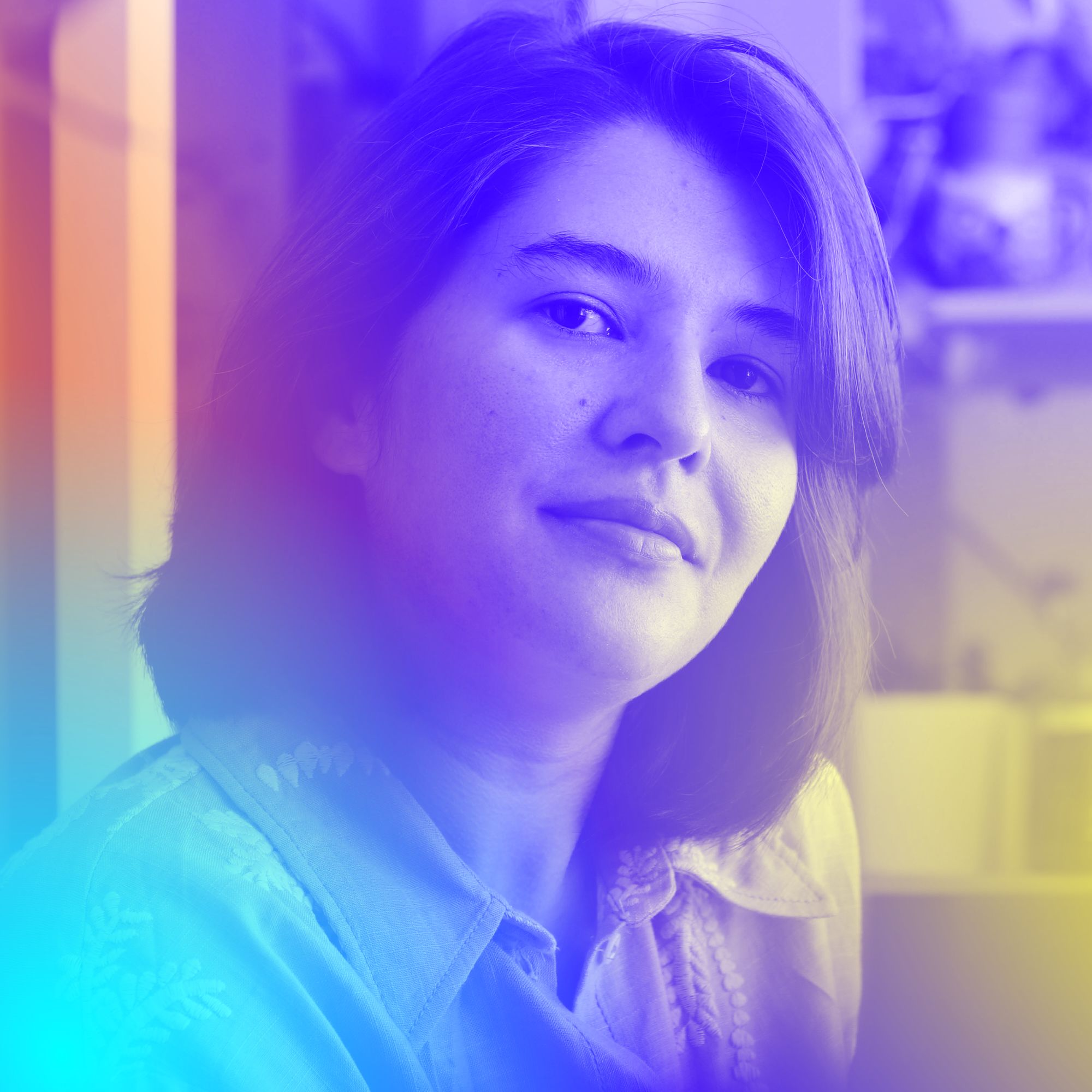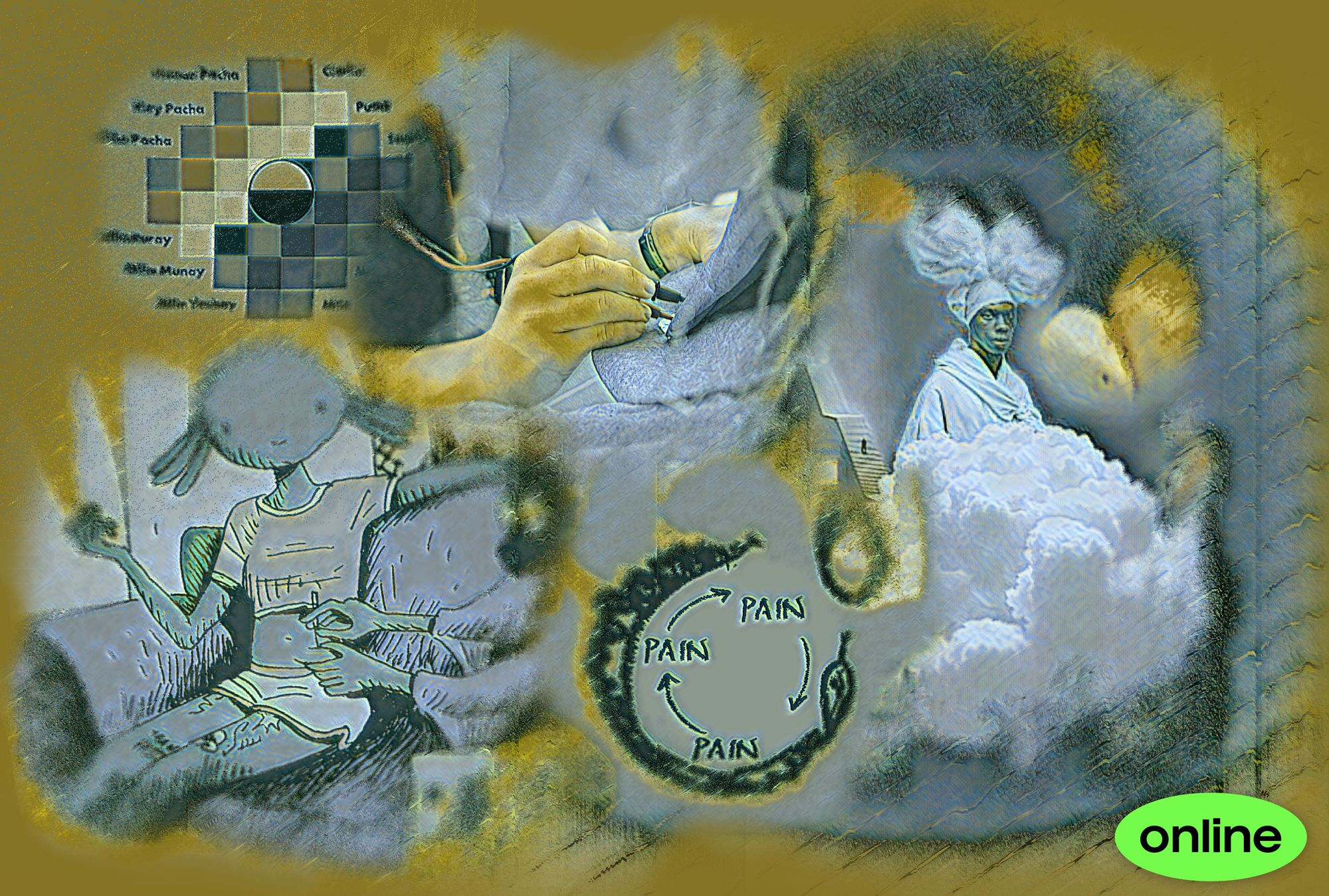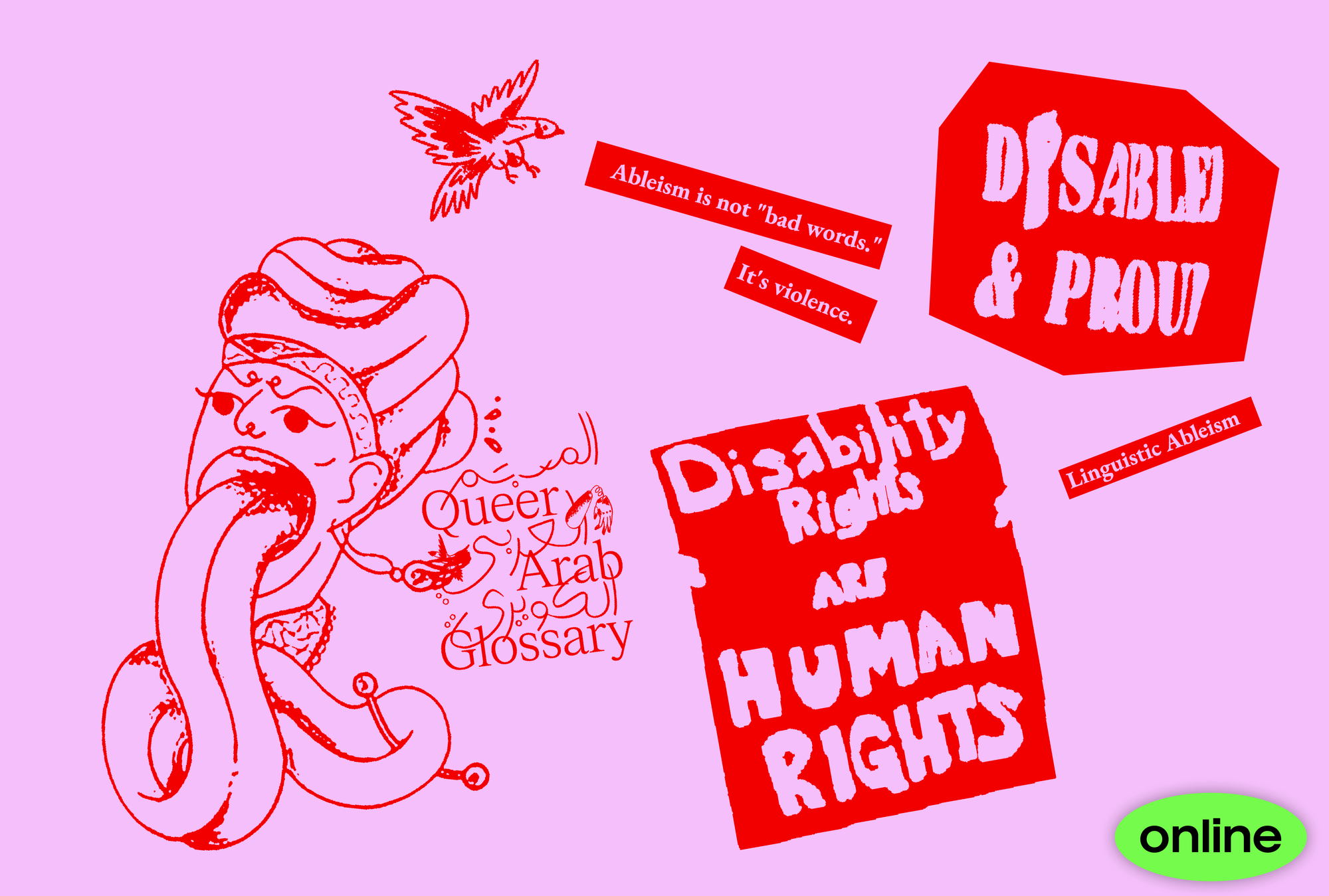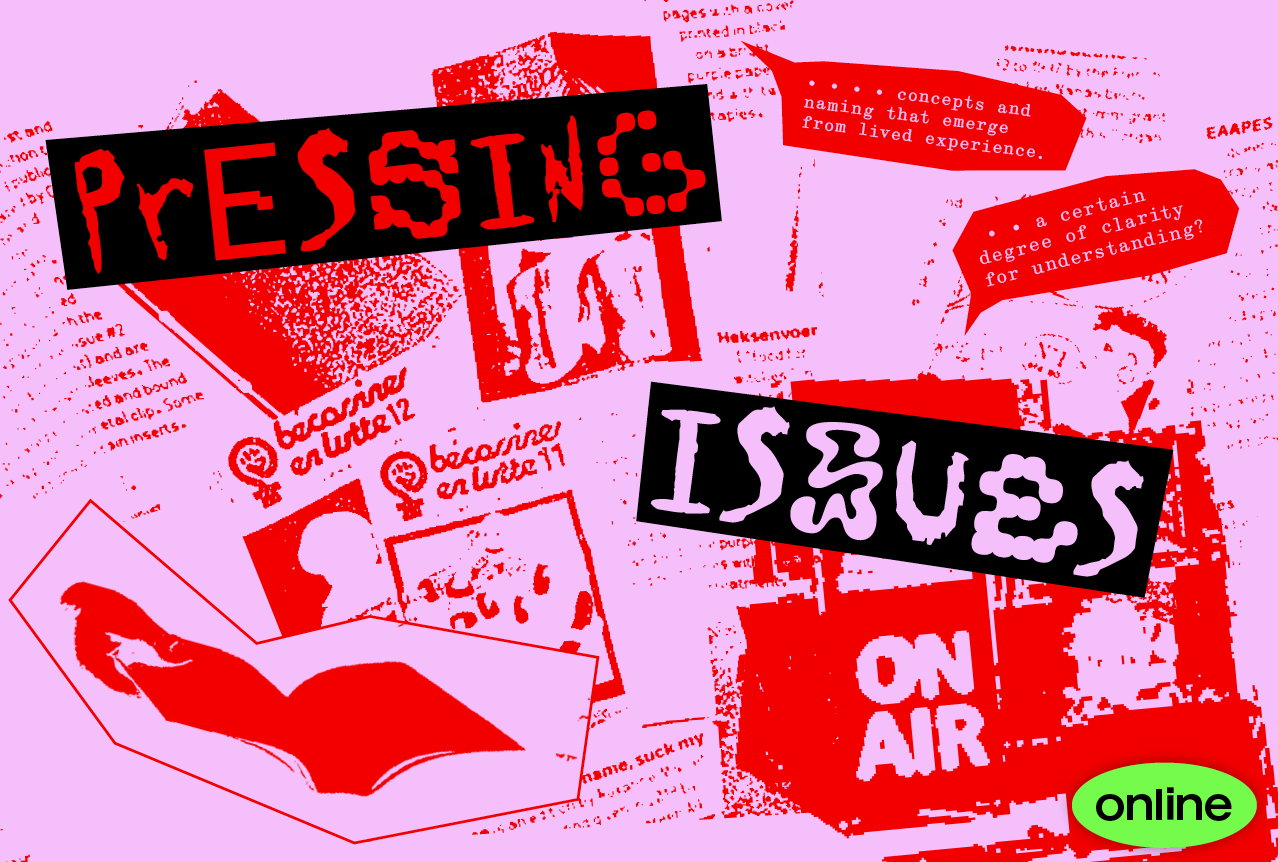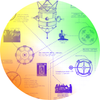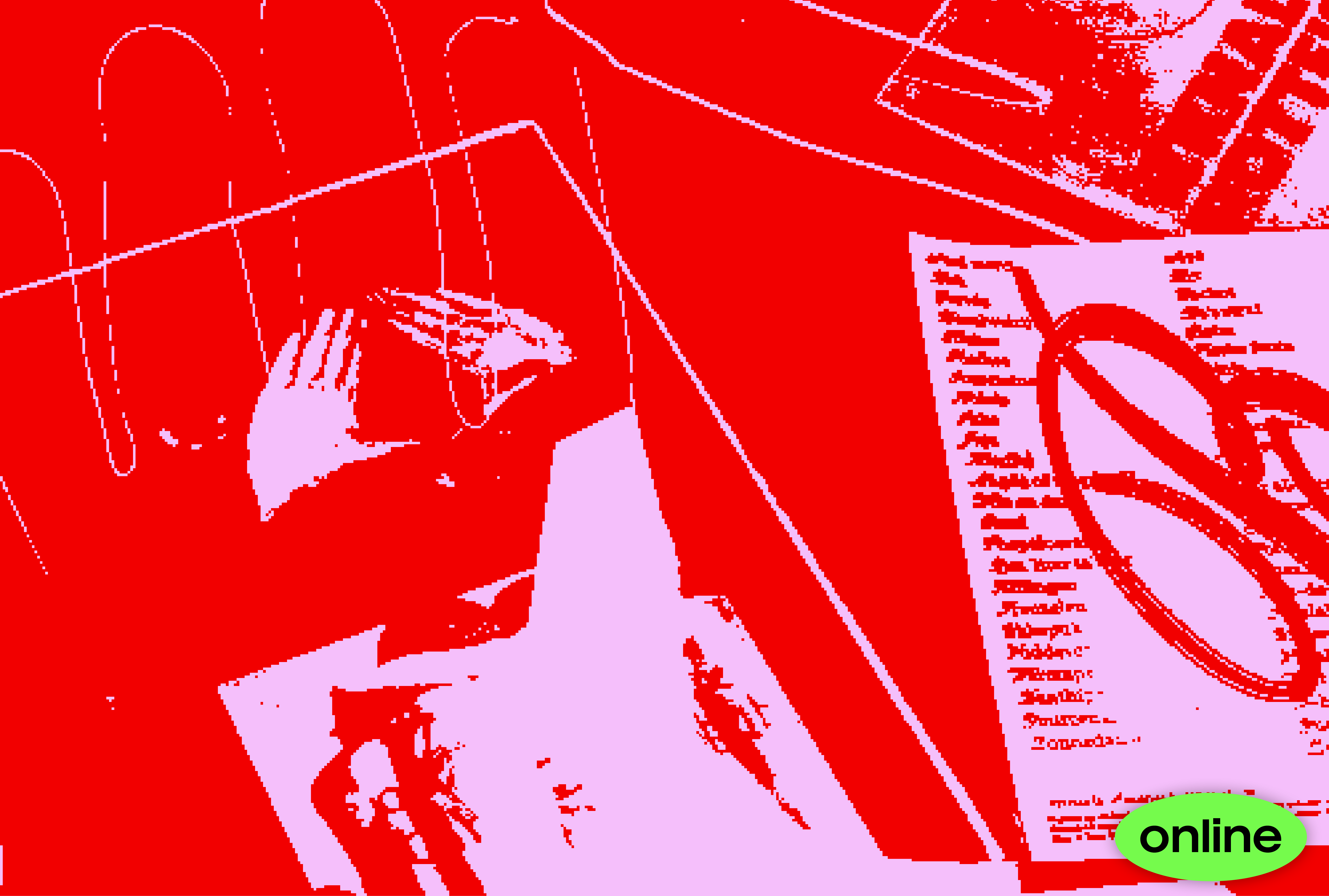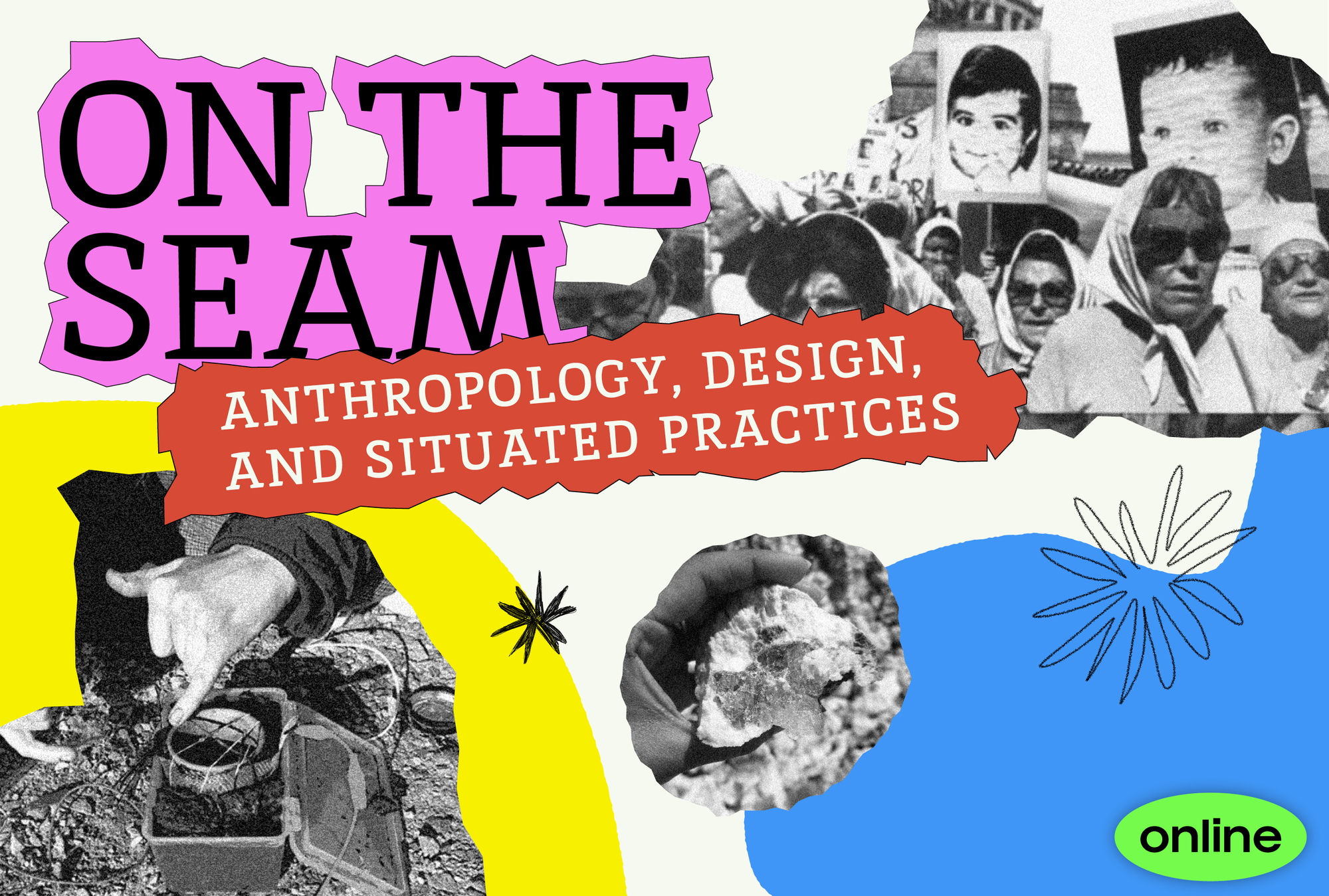
A symposium navigating frictions, collaborations, and politics shaping present struggles and future possibilities.
Anthropology and design are both shaped by colonialism, though distinct in their disciplinary and historical trajectories. Today, these colonial legacies are entangled in how they each shape, study, and intervene in the world.
Design, often celebrated as a force of innovation, carries with it a promise of better futures, of solutions, of progress. But as feminist and decolonial critiques remind us, progress is never neutral. It is rooted in extraction and exclusion, and shaped by histories and presents of ableism, capitalism, colonialism, patriarchy, and white supremacy. Therefore, the promise of better futures is not accessible to everyone in the same way. But design, as a practice of worldmaking, is also a site of possibility—a way of shaping what could be. The question remains: whose worlds are being created, and who is involved in this process?
By contrast, anthropology often unsettles the very narratives that design provides. It makes visible the frictions, contradictions, and inequalities embedded in everyday life. It asks: whose futures are being imagined, and whose pasts are erased as a result of this? It critiques, it disrupts, it refuses. However, in its critique, anthropology risks remaining at the level of refusal—treating design as an object of study rather than engaging design and designers as partners in practice. Even worse, it sometimes replicates neoliberal designerly modes of making while overlooking the histories of anti-capitalist, decolonial, and feminist critiques already present within design.
If design imagines, anthropology questions. But can anthropology also imagine otherwise? This symposium sits with these tensions. What happens when anthropology and design meet—not in harmony, but in friction? How do their practices, methodologies, and ways of knowing collide, entangle, and transform? Can the meeting of anthropology and design become a site of worldmaking—not in the service of dominant social orders, but in response to the struggles of those who refuse them and are impacted by their injustices?
Over two days of presentations, roundtable discussions, and conversational formats, On the Seam explores how anthropology and design intersect—whether in education, technology, or engaged practices within and beyond academia. Through feminist and decolonial lenses, and practices emerging from within them, Dana Burton, Imad Gebrael, Farah Hallaba, Mahmoud Keshavarz, Cherry-Ann Morgan, Prathima Muniyappa, Helen Pritchard, Bibiana Serpa, and Grace Turtle consider how knowledge is produced, how power is held, and how certain ways of knowing, being, and making are rendered invisible. We ask whether anthropology and design can be mobilized collaboratively—not to reproduce hegemonic structures, but to create space for more just, situated, and pluralistic ways of inhabiting the world.
On the Seam: Anthropology, Design, and Situated Practices is a collaboration between Futuress and the Department of Design History and Theory at the University of Applied Arts Vienna, Austria, as part of the Austrian Science Fund (FWF)-funded research project “Design Anthropology: Cold War Industrial Design & Development” (Grant DOI 10.55776/PAT4411223).
The event is co-curated by Anna N. Nagele and Maya Ober and co-coordinated by Mio Kojima and Anna N. Nagele. Visuals by Heba Daghistani.
Overview
- Day 1: May 8, 2 pm–6:30 pm CEST
- Day 2: May 9, 9:30 am–1 pm CEST
- 3 sessions with each 2 short lectures, 1 roundtable discussion & 1 Let's Talk group conversation
- Via Zoom with CART*
- Language: English
- Free open open for all
Accessibility
May 8 Timeline
Welcome & Opening Remarks
Lectures Session
Pedagogy and Education at the Seam of Anthropology and Design
Moderated by Maya Ober
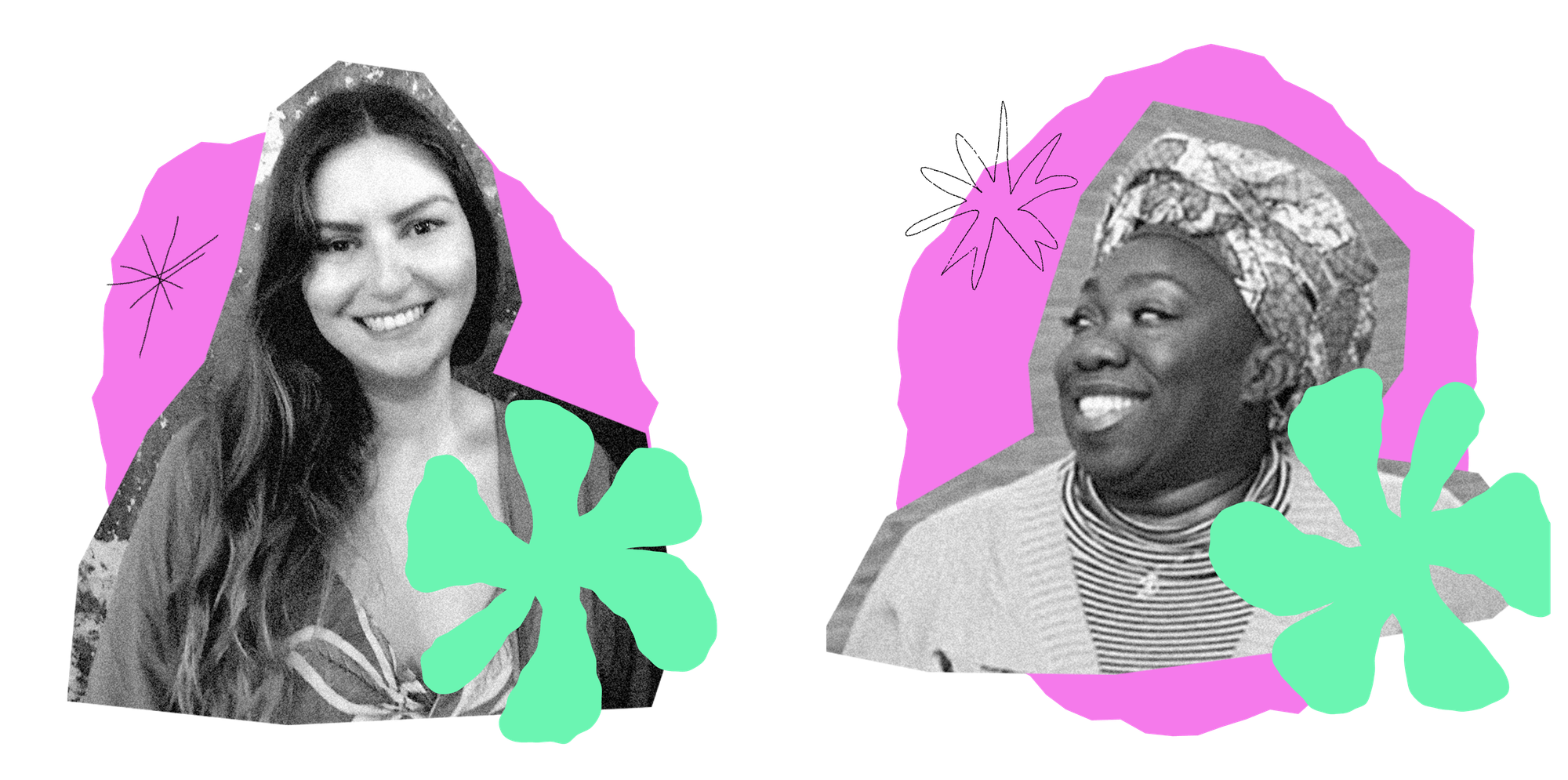
Learning from the Grassroots: Objects, Struggles and Feminism
Bibiana Serpa (she/her)
Design Researcher, Educator & Activist
Design in Craft, Traditions, and Memories
Cherry-Ann Morgan (she/her)
Creator, Educator & Researcher
Lectures Session
Anthropology and Design Shaping Techno-Imaginaries
Moderated by Anna N. Nagele
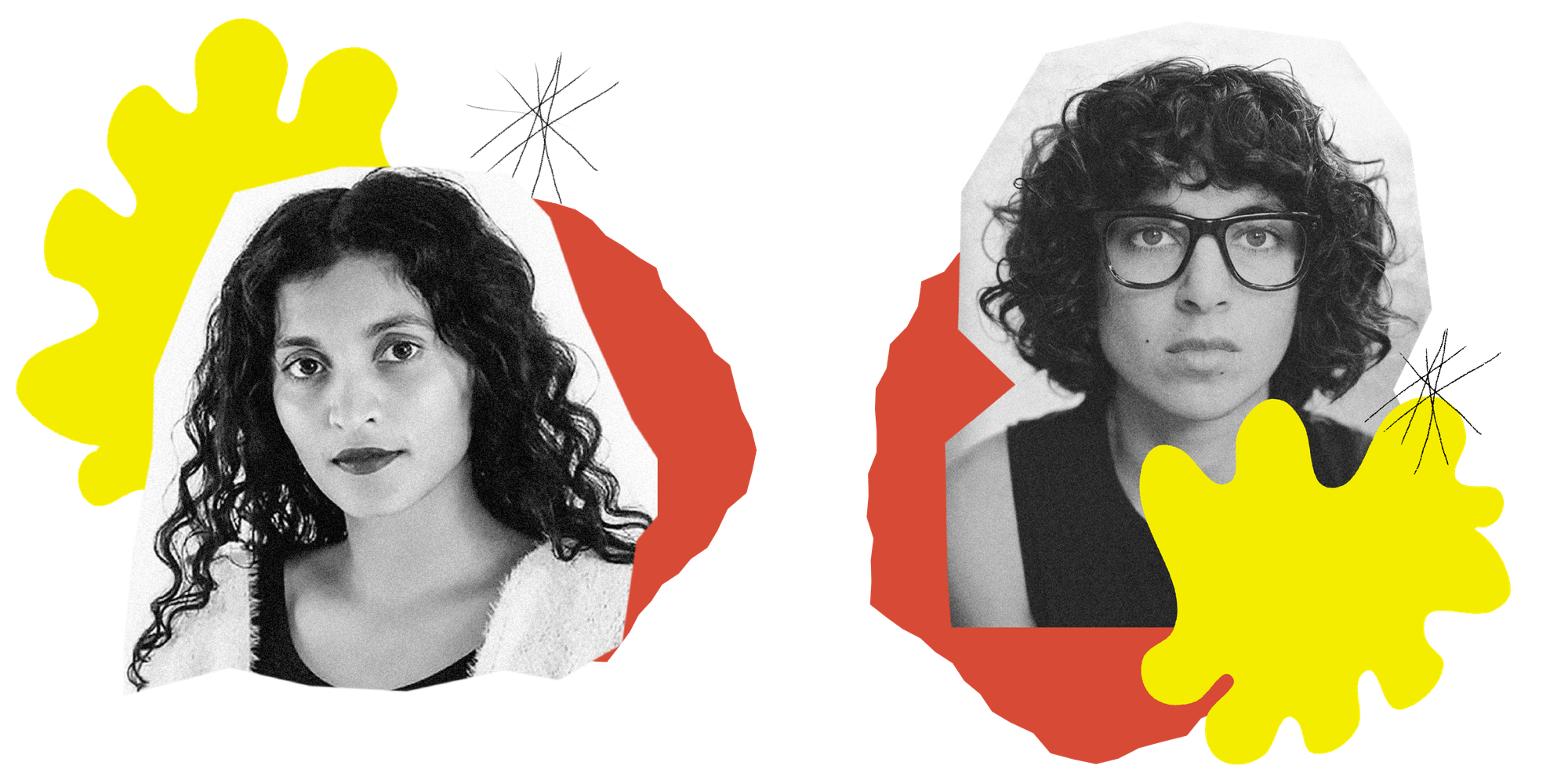
The Myths of the Cosmos: Alternative Indigenous Narratives for Space Exploration
Prathima Muniyappa (she/her)
Designer, Conservator & Researcher
Queering Human-AI Co-predictive Relations
Grace Turtle (they/them)
Independent Designer & Researcher
Roundtable
Frictions, Futures, and Possibilities of Anthropology & Design
Moderated by Anna N. Nagele and Maya Ober
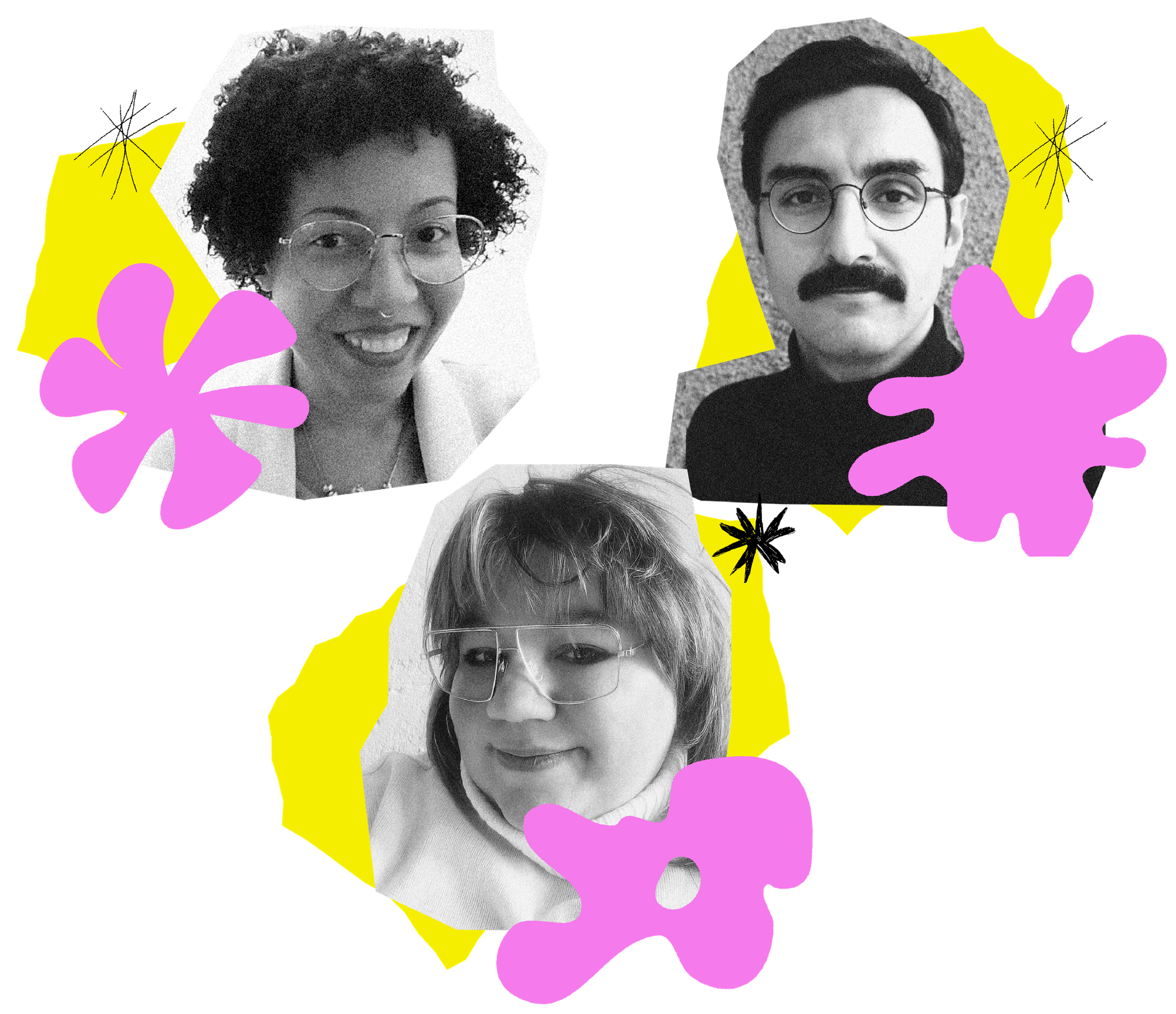
Mahmoud Keshavarz (he/him) – Writer & Researcher
Helen Pritchard (they/them) – Artist-Designer, Geographer, & Queer Love Theorist
May 9 Timeline
Welcome & Opening Remarks
Lectures Session
Engaged Practices in Anthropology & Design
Moderated by Amanda Haas Halim
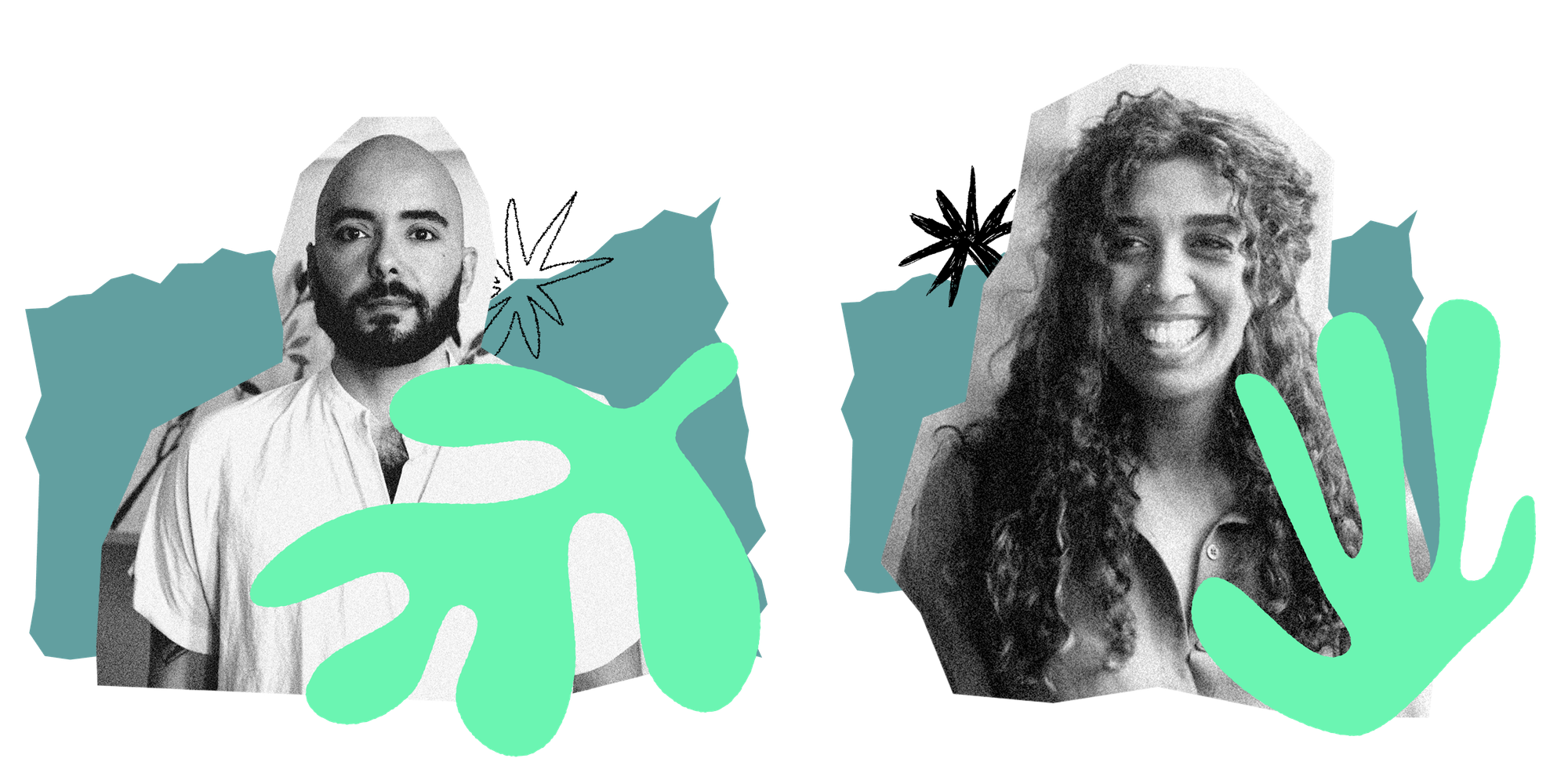
Weaving Opacities: Podcasting Sonnenallee
Imad Gebrael (he/him)
Designer & Anthropologist
Being Borrowed: Encounters of Collaborative and Creative Knowledge Production in Researching Migration to the Gulf
Farah Hallaba (she/her)
Anthropologist & Cultural Programmer
Group Conversation
Let’s Talk About Ways of Knowing
Co-curated by Mio Kojima and Bibiana Serpa
Closing Remarks & End of Symposium
Full Program
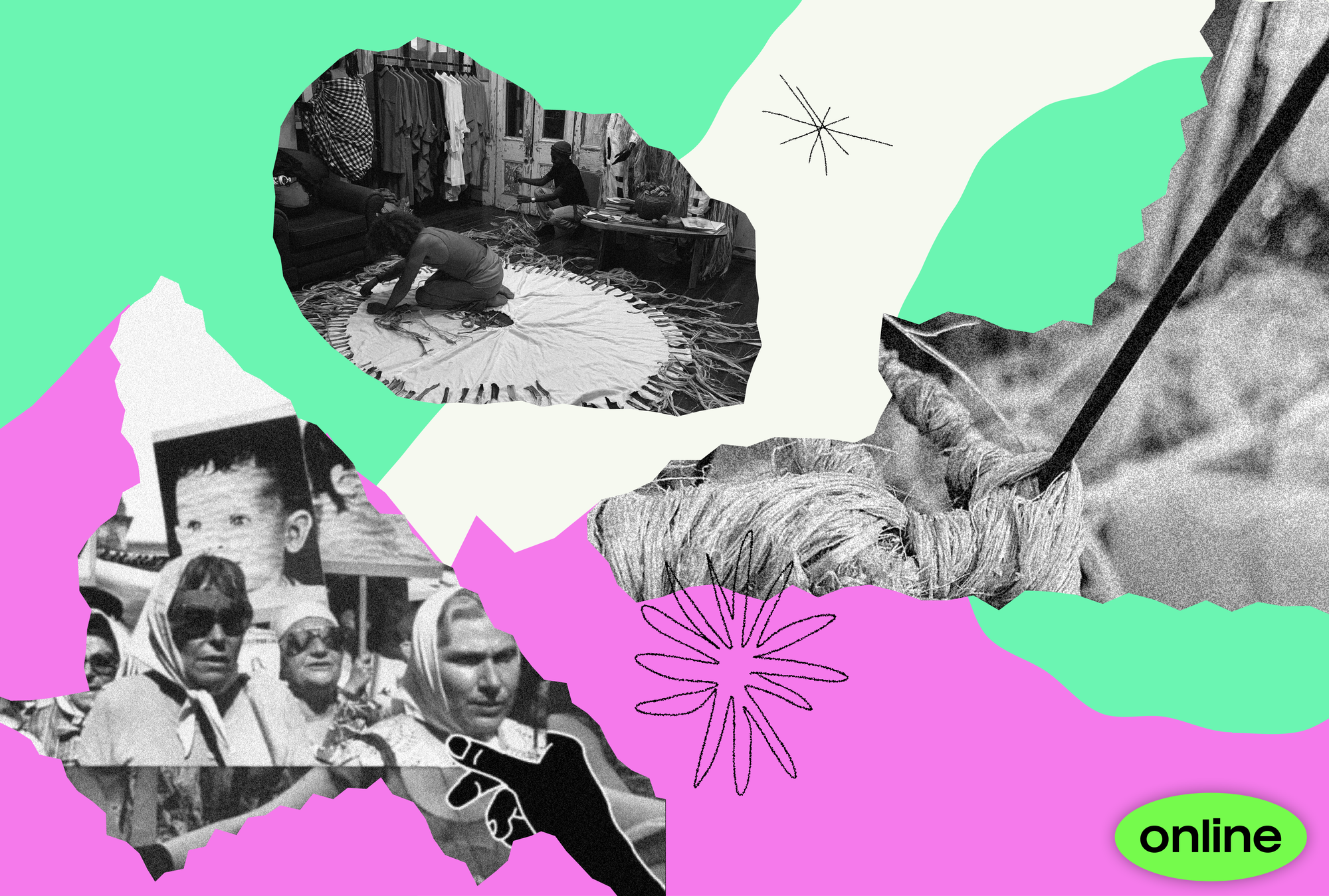
May 8, 2025 | 2:15 pm CEST | online | free | lectures | with Bibiana Serpa and Cherry-Ann Morgan | moderated by Maya Ober
Two presentations by Bibiana Serpa and Cherry-Ann Morgan discuss the intersections of design and anthropology in education—where methodologies, ways of knowing, and pedagogical practices converge, challenge, and transform one another.
Design education and anthropological training have both been shaped by evolving critical discourses, yet they remain largely enclosed within their own disciplinary logics. What happens when they are brought into conversation—not as a simple exchange, but as a confrontation, a negotiation, a reshaping of pedagogical possibilities?
Can anthropology’s reflexivity unsettle the entrenched hierarchies of design pedagogy? Can design’s generative, practice-based methods open anthropology to new ways of engaging with knowledge production? And how do both disciplines reckon with the tensions between institutional constraints, market pressures, and the promise of transformative learning?
Learning from the Grassroots: Objects, Struggles and Feminism
Bibiana Serpa
The material and visual production of social movements is rarely recognized as an object of study by design or anthropology. Even so, these collectives continue inventing ways of life, re-signifying objects, narratives, and the struggle. What can everyday objects teach us about feminist resistance across time, and about design itself? We need to revisit design from its margins: the domestic spaces, women’s (and feminist) knowledge, and practices often made invisible by the dominant narratives of the discipline. Using the history of the struggle for reproductive justice in Latin America as a guiding thread, this talk proposes to learn from the grassroots—from women’s experiences, struggles, and commonplace objects—to pave the way for a design more committed to social justice, situated knowledge, and concrete transformations.
Design in Craft, Traditions, and Memories
Cherry-Ann Morgan
This presentation explores the role of design in craft as a vessel for tradition and memory, examining how material culture preserves and reinterprets heritage. Through the case study of artisanal practices in Trinidad Carnival, Cherry-Ann will uncover how craft embodies ancestral knowledge, identities, and evolving cultural narratives. The discussion highlights the tension between preservation and innovation, and authenticity and representation as we consider how contemporary designers engage with traditional techniques to create new meanings, shaping speculative visions that can inform more inclusive and imaginative futures. By bridging past and present, craft-based design fosters continuity, adaptation, and storytelling, ensuring that cultural memories remain dynamic and relevant in an ever-changing world.
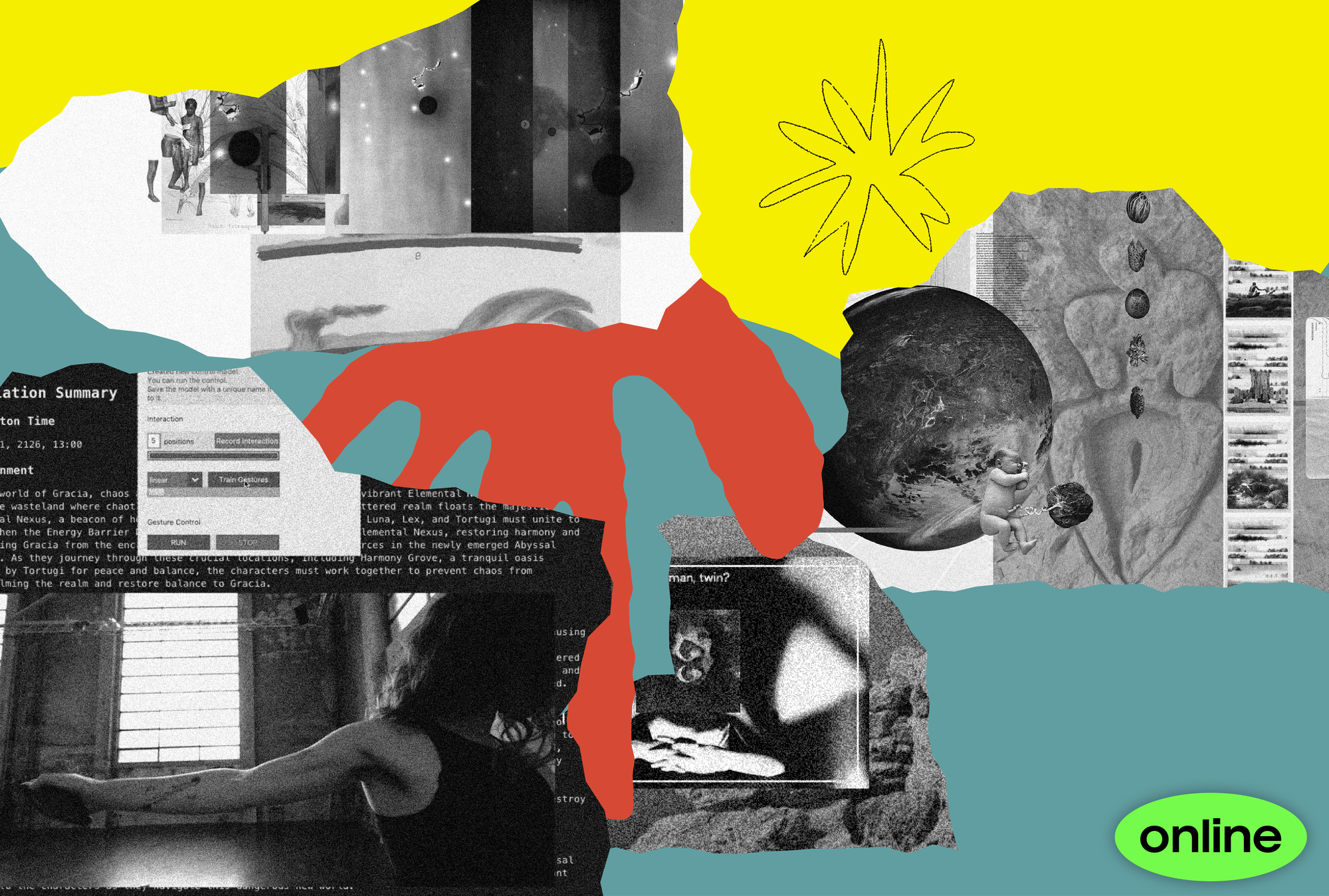
May 8, 2025 | 3:50 pm CEST | online | free | lectures | with Grace Turtle and Prathima Muniyappa | moderated by Anna Nolda Nagele
Two presentations by Grace Turtle and Prathima Muniyappa share approaches to how design and anthropological research impact the development of emerging technologies, and the potential for a meeting of the disciplines to dream up more just technological futures.
Visions of future technologies are often propagated by big tech, engaging in neo-colonial practices to turn those visions into reality, while relying on non-Western countries for cheap labor and the extraction of raw materials. Market-oriented user research employs ethnographic methods for greater adoption of those technologies, thus further colonizing less competitive markets.
This session asks how a reflective and critical anthropological approach can unearth alternative techno-imaginaries and infuse design’s world-making with more local, situated knowledge and hopes.
The Myths of the Cosmos: Alternative Indigenous Narratives for Space Exploration
Prathima Muniyappa
The blanket expanse of deep space has enchanted the cultural imagination of nearly every civilization on earth, with its vast scale becoming the fountainhead of creation mythology for sky-bound minds inhabiting earthbound cultures. Indeed, it is the notion of shared provenance that legitimizes every culture’s equal right over the territory of space.
Indigenous people across the globe remain explorers of the incredible mystery that animate our skies through rich cultural cosmologies evolved over millennia of observation. Their knowledge represents diverse ontologies that offer insight into radically different relationships that humans have evolved with space and its exploration, and is a source of intangible heritage that rarely makes an appearance in the mainstream discourses on space exploration.
As humans become prominent actors in extraterrestrial realms, we pose complex questions of identity. Whose identity becomes a blueprint for “humanity?” What cultures are represented? What others are silenced by deliberate obscuration, or worse—by ignorance and apathy? In response to the issue presented by monolithic identities and monocultures of mind, this lecture explores the storied cultural heritage preserved in Indigenous communities, and presents alternative cultural ontologies relating to the stars, the cosmos, and other dimensions, and extended voyages that can shape the discourse for a more inclusive and diverse mythology of future space exploration.
Queering Human-AI Co-predictive Relations
Grace Turtle
This presentation gives insight into queer knowledge-making practices, orientations, and tactics that foreground fluidity, plurality, and more-than-human entanglements as interventions in AI systems.
Drawing from a background in futuring, intersecting with AI research, and design for more-than-human relations, Grace will share some of their recent auto-theoretical experimentation in queering AI that plays with subversive data practices to distributed agency and co-predictive relations in making and performing with digital twin simulations from a Mestizx perspective. This sharing responds to a dilemma: AI’s impulse to “fix” possible worlds. “Fixing” here means the attempt or desire to secure, settle, or predetermine (un)anticipated realities, which often preempts more nuanced and unpredictable emergences of bodies and worlds by reinforcing normative behaviors. In short, this presentation proposes new directions, or minor trans/formations in how AI is developed, making space for emergent, queer (re)generative futurities as a horizon of possibilities.
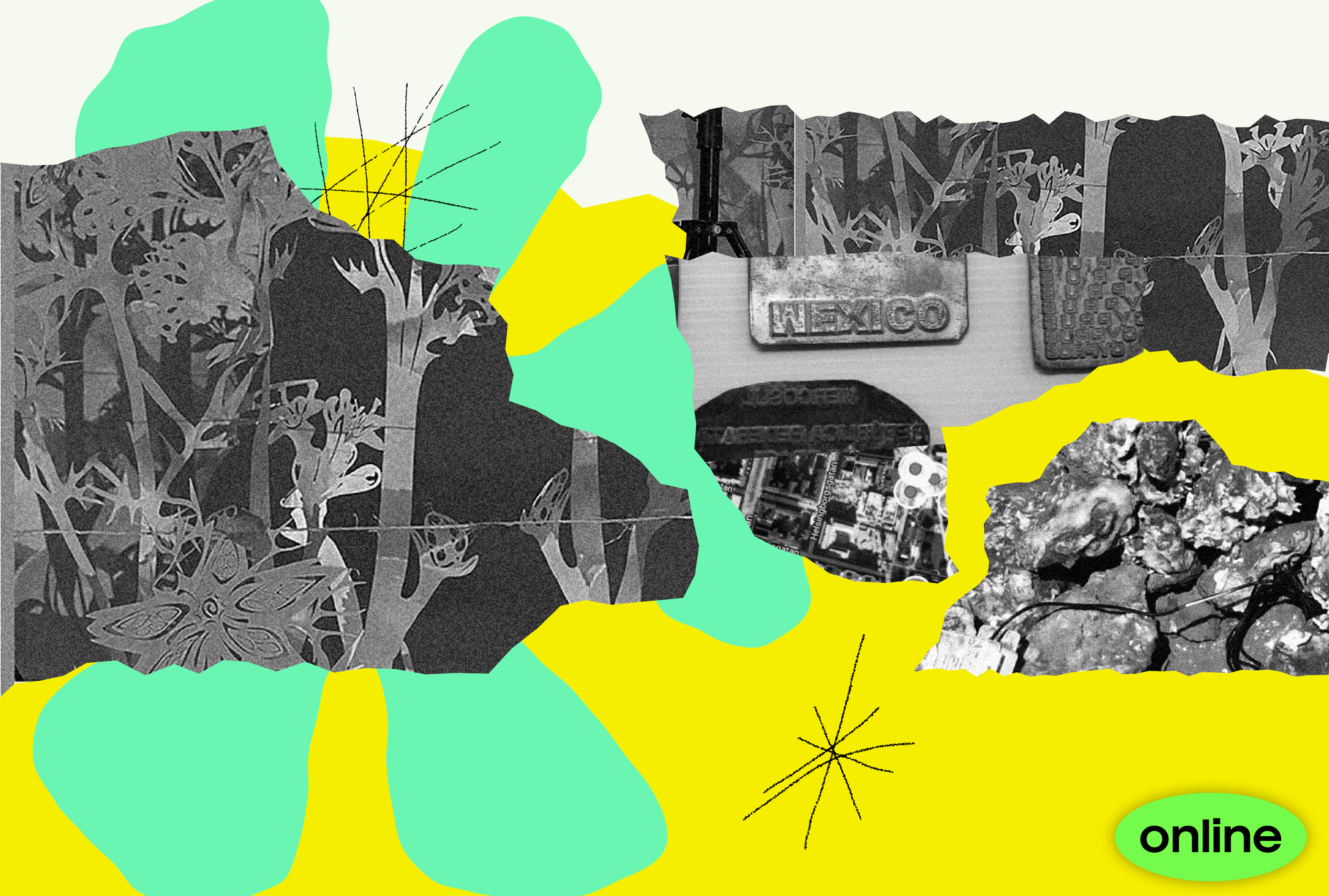
May 8, 2025 | 5:30 pm CEST | online | free | roundtable | with Dana Burton, Mahmoud Keshavarz, and Helen Pritchard | moderated by Anna Nolda Nagele and Maya Ober
This roundtable conversation with Mahmoud Keshavarz, Helen Pritchard, and Dana Burton explores critical questions about the possible joint trajectories for anthropology and design.
What happens when anthropology and design come into contact—not as complementary disciplines, but as fields in tension, in interlocution, entangled in their problematic histories and presents? What happens when they refuse to serve dominant social orders and instead align with the struggles of those who resist them, those who are impacted by their injustices?
These disciplines do not simply intersect; they negotiate, they unsettle. They generate new ways of thinking, making, and being in the world, but they also expose the limits of collaboration, the constraints of institutions, and the risks of co-option. When do practices on the seam of anthropology and design open up possibilities, and when do they reinforce the very structures they seek to dismantle?
In this roundtable, Dana Burton, Helen Pritchard, and Mahmoud Keshavarz reflect on the moments where anthropology and design converge, where they clash, and where they force us to reimagine what each discipline can be. Drawing from their experiences in research, practice, and pedagogy, they will consider the politics of participation, the ethical dilemmas of working across different modes of knowledge production, and the uneasy balance between critique and complicity.
What forms of collaboration move beyond extractive models? How do we challenge disciplinary boundaries without reinforcing institutional hierarchies? And what imaginaries emerge when anthropology and design are brought into dialogue—not as stable categories, but as evolving, contested terrains of inquiry?
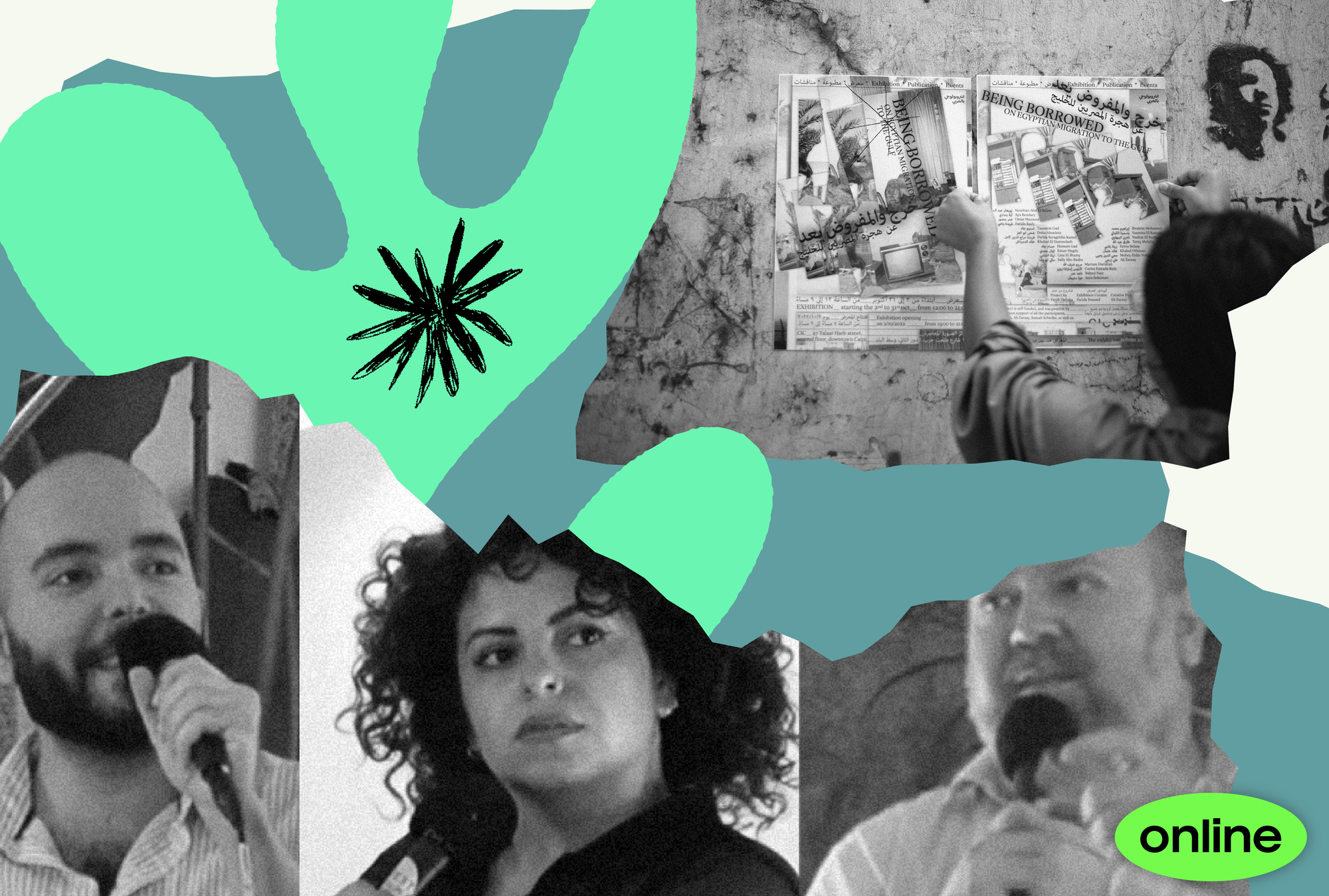
May 9, 2025 | 9:45 am CEST | online | free | lectures | with Imad Gebrael and Farah Hallaba | moderated by Amanda Haas
Two presentations by Imad Gebrael and Farah Hallaba examine how engagement can unfold in practice—whether through research, pedagogy, activism, or creative intervention.
What does it mean to practice engagement—as a method shaped by power, access, and the constraints of economies, institutions, and geopolitical systems?
Both anthropology and design claim engagement as central to their practice—through fieldwork, intervention, collaboration, and co-creation. However, engaging with people, non-human beings, materials, objects, or places is never neutral. It is underpinned by the politics of those who participate, embedded in existing social orders, and shaped by the asymmetries of knowledge, resources, and authority. Who sets the terms? Who has the right to enter a space, to collect, to shape? And what happens when participation reinforces the very hierarchies it seeks to dismantle?
Weaving Opacities: Podcasting Sonnenallee
Imad Gebrael
Much like the majority of its residents, Berlin’s Sonnenallee—commonly referred to as the “Arab Street”—has been othered, vilified, virilized, estranged, and subjected to extensive research as an urban space that disrupts European conventions of city-making, provisioning, and governing. Amid heightened skepticism and increased policing targeting Arabic-speaking communities in Berlin, a prevailing sense of personal and communal unsafety permeates the street. Confronting the refusals and challenges of such conditions, Imad turns to podcasting as a primary research method. Podcasting actively brings forth narratives of living, working, remembering, and negotiating public space. How do we effectively listen to refusal in a podcast form? And how does podcasting, as an ethnographic method, contribute to researching otherwise?
Being Borrowed: Encounters of Collaborative and Creative Knowledge Production in Researching Migration to the Gulf
Farah Hallaba
“Being Borrowed: On Egyptian Migration to the Gulf” started as an endeavor to anthropologically understand a personal experience through a process of inquiry that is not bound to the academic and institutional model. This talk takes the frame of the encounter seriously, going through the different forms that Being Borrowed as a project has taken, to explore “the methodological productivities and anxieties in the process of creating a collaborative and a creative mode of anthropological knowledge production on the understudied experiences of migrating to the Gulf.” Through different encounters of absences and possibilities in the process of actualizing an anthropological-curatorial project, Farah invites us to reimagine ethnographic methodology as a public interaction geared towards joint knowledge production.
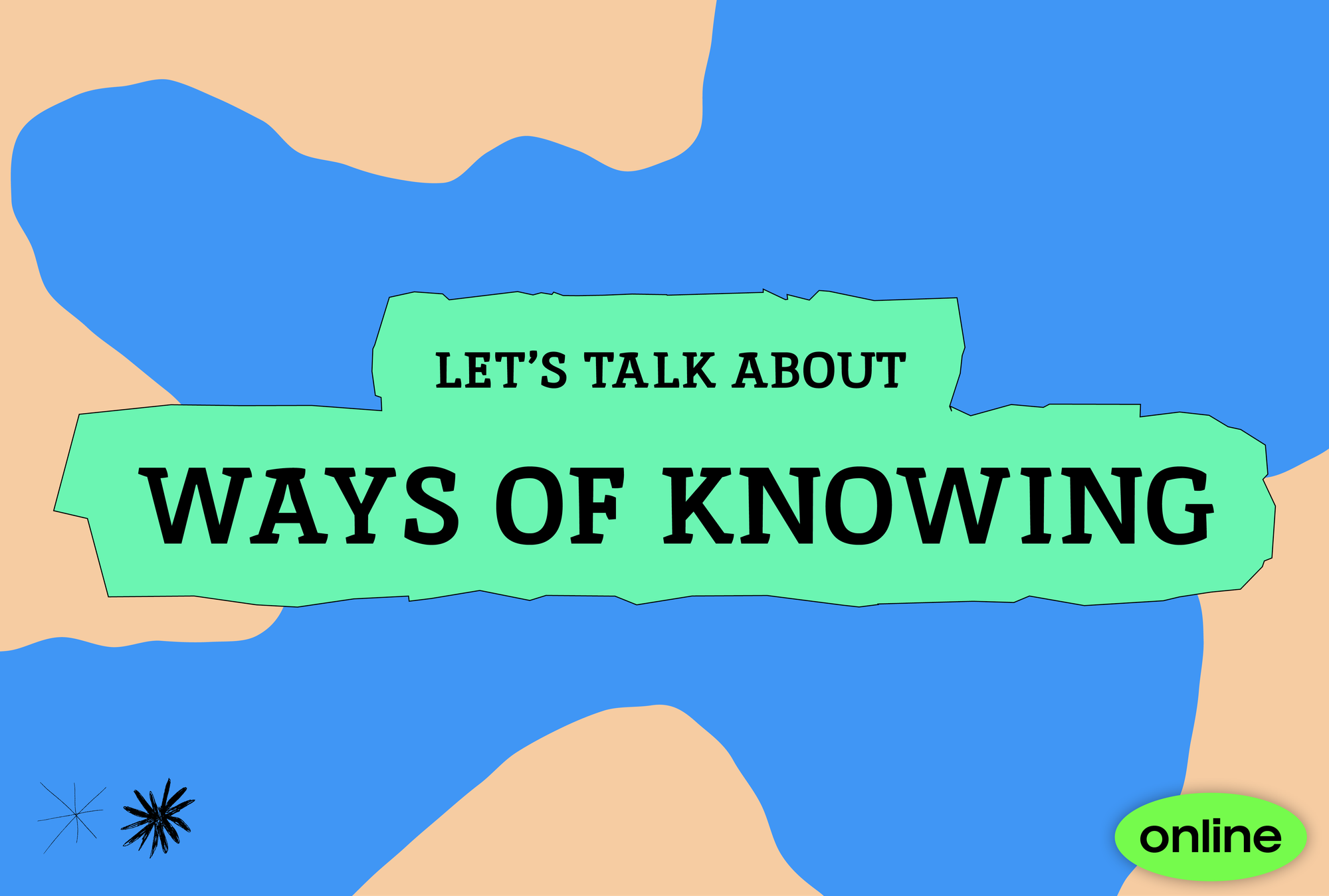
May 9, 2025 | 11:20 am CEST | online | free | open group conversation | co-curated by Mio Kojima and Bibiana Serpa
This open conversation invites you to discuss how individuals, communities, spaces, and environments engage with various forms of knowledge.
The intersection of design and anthropology holds the promise of a space where written theorization can be decentered in favor of embodied, oral, and communal ways of being and sense-making. Design, as a field historically considered a practice of doing, and anthropology, as a field concerned with thinking, together create the potential of thinking through doing and problematizing the impact of design’s and anthropology’s objects and systems. However, as practices emerging from academic education, both design and anthropology are embedded in hierarchical relationships that favor research about and design for over designing and researching from within communities and spaces.
In this session, we critically reflect on the positions from which practitioners research and design and ask:
- What—and whose experiences and practices—is considered valuable knowledge in design and anthropology?
- How can we make room in our communities and spaces for different knowledges and experiences?
- How is knowledge passed on and what role does the positionality of the practitioner play in how knowledge is accessed?
As the symposium’s closing event, the format also gives space to reflect on the events held over the past two days on the topics of pedagogy and education, techno-imaginaries, engaged practices, and the frictions and possibilities of anthropology and design.
Team
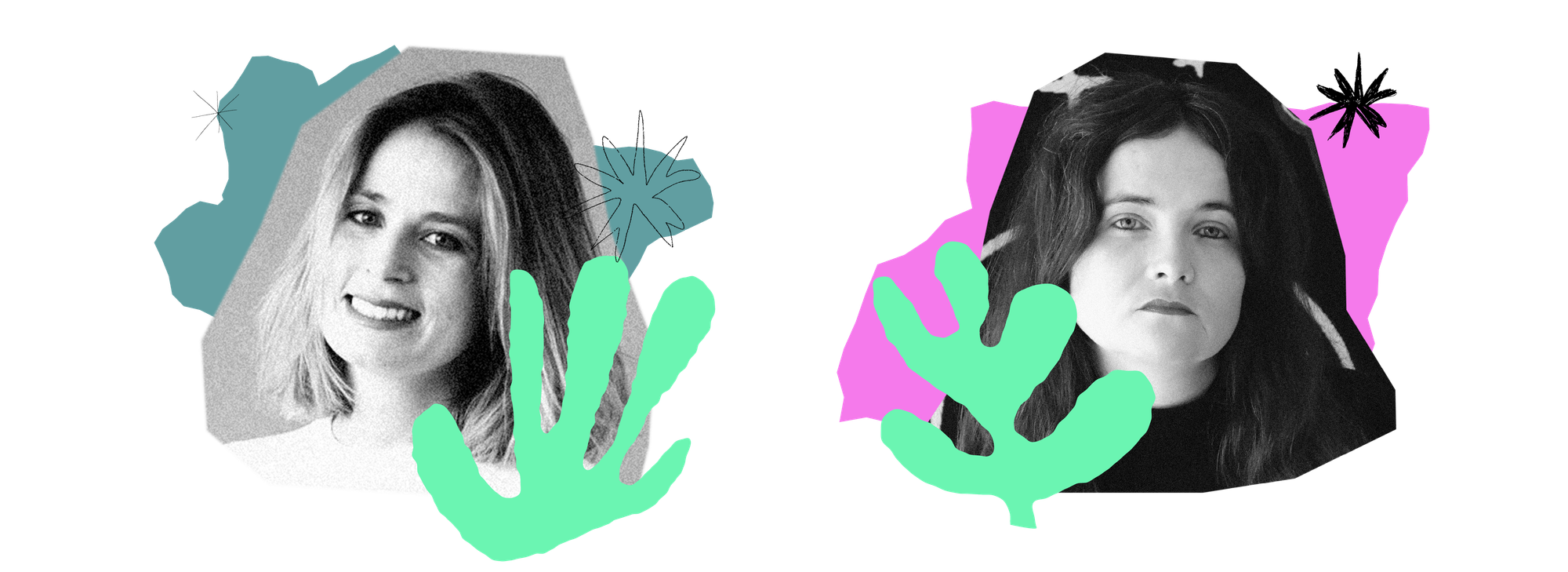
Symposium Co-Curation & Co-Coordination
Anna N. Nagele (she/her)
Researcher, Educator & Editor
Symposium Co-Curation
Maya Ober (she/her)
Anthropologist, Educator & Designer
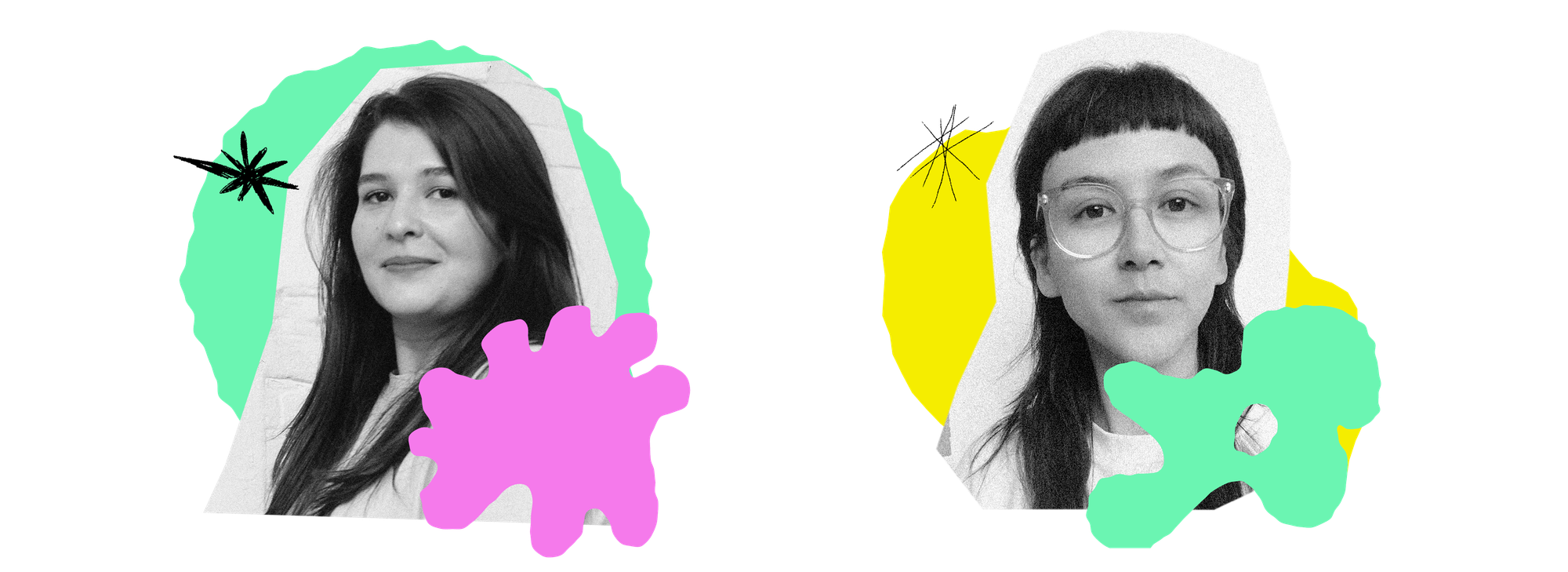
Symposium Graphic Design
Heba Daghistani (she/her)
Designer & Researcher
Symposium Co-Coordination
Co-Curation & Co-Moderation of
“Let's Talk About Ways of Knowing”
Mio Kojima (she/they)
Design Educator & Editor/Publisher
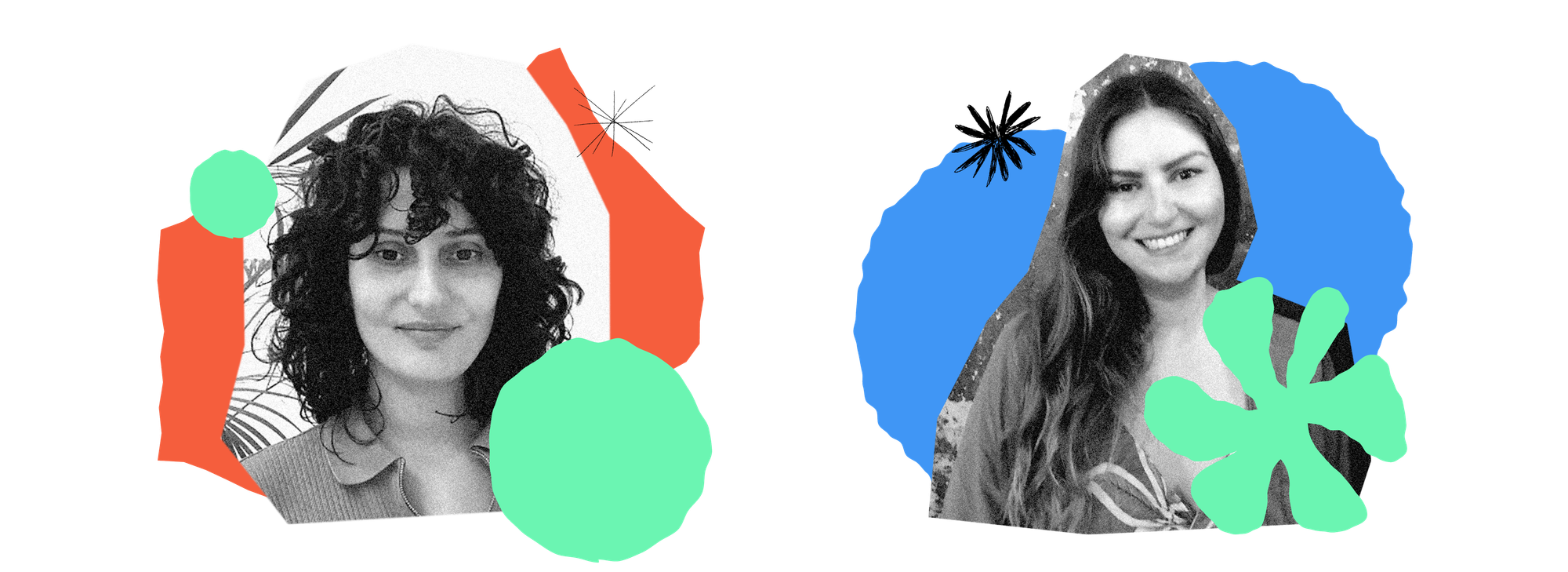
Moderation of
“Engaged Practices in Anthropology and Design”
Amanda Haas Halim (she/they)
Graphic Designer, Lecturer, Publisher & Researcher
Co-Curation & Co-Moderation of
“Let's Talk About Ways of Knowing”
Bibiana Serpa (she/her)
Design Researcher, Educator & Activist



